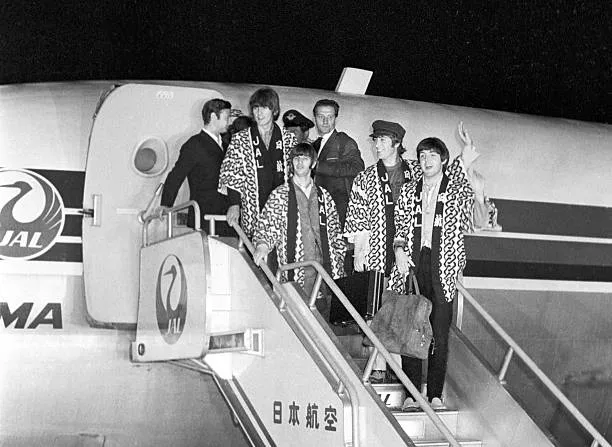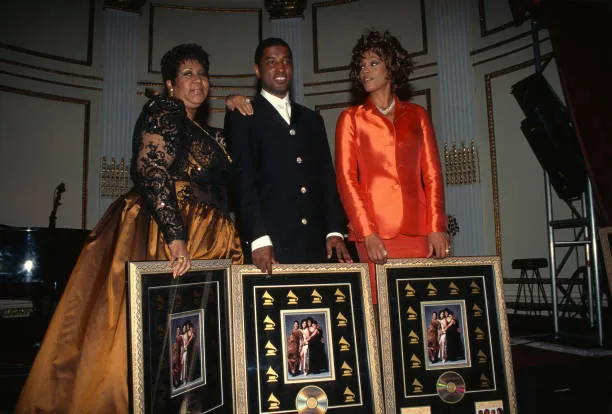George Martin, often called "the Fifth Beatle," was more than just a producer; he was an integral part of The Beatles' success. His innovative ideas and technical expertise helped shape the sound of the most influential band in history, making him one of the most revered figures in the music industry. This article delves into the remarkable contributions of George Martin as The Beatles’ primary producer, exploring his role in their recordings and why he remains a legendary figure in music.
The Early Days: How George Martin Became The Beatles’ Producer

The story of George Martin’s collaboration with The Beatles began in 1962 when he was a producer at EMI’s Parlophone label. At that time, Parlophone was primarily known for comedy records and classical music, and Martin was seeking to expand its catalog into pop music.
When The Beatles, then an unknown band from Liverpool, were brought to his attention, Martin was intrigued, though not entirely convinced by their initial demo tape.
However, upon meeting the band, Martin was struck by their charisma, humor, and potential. Despite his reservations about their original songs, he saw something special in John Lennon, Paul McCartney, George Harrison, and Ringo Starr. Martin agreed to work with them, and this decision would change the course of music history.
The Birth of a Legendary Partnership

George Martin’s role as The Beatles’ producer was not just about overseeing recording sessions. He became a mentor, collaborator, and creative partner to the band.
His classical music training and experience in the studio allowed him to bring a level of sophistication to their recordings that was unprecedented in pop music at the time.
One of Martin’s most significant contributions was his ability to translate The Beatles' raw ideas into polished recordings.
He was the one who suggested that the band speed up the tempo of "Please Please Me," transforming it from a slow ballad into the upbeat hit that became their first number one single in the UK. This was just the beginning of his impact on their music.
Innovation in the Studio: Creating New Sounds

As The Beatles evolved, so did their music, and George Martin was at the forefront of this transformation. He pushed the boundaries of what was possible in the recording studio, using technology and creative techniques to achieve sounds that had never been heard before.
One of the most famous examples of Martin’s innovation is the use of a string quartet in "Yesterday." Paul McCartney had written the song as a simple acoustic guitar ballad, but Martin envisioned it with a classical arrangement.
The addition of the strings gave the song a timeless quality and marked a significant departure from the standard pop song format.
Another groundbreaking moment came with the recording of "Strawberry Fields Forever." The song, written by John Lennon, was complex and surreal, and Lennon wanted it to sound like a dream.
Martin achieved this by splicing together two different takes of the song, recorded at different tempos and in different keys, using a technique called varispeed. The result was a haunting, otherworldly sound that perfectly captured Lennon’s vision.
Pushing Creative Boundaries: The Beatles’ Studio Albums

The creative partnership between George Martin and The Beatles reached its peak with their later albums, where the studio became an instrument in itself.
Albums like Revolver, Sgt. Pepper’s Lonely Hearts Club Band, and The White Album were groundbreaking not just for their musical content but for the way they were produced.
On Revolver, Martin and The Beatles experimented with tape loops, backward recordings, and artificial double tracking (ADT), a technique Martin developed to replicate the effect of double-tracking vocals without having to record them twice.
These innovations gave songs like "Tomorrow Never Knows" a psychedelic feel that was unlike anything else in pop music at the time.
Sgt. Pepper’s Lonely Hearts Club Band is perhaps the pinnacle of George Martin’s work with The Beatles. The album was a concept record, with each song flowing into the next, creating a seamless listening experience.
Martin’s orchestral arrangements, sound effects, and innovative use of recording technology helped to create a vivid, immersive world that was both sonically rich and thematically cohesive. The album won four Grammy Awards, including Album of the Year, and is often cited as one of the greatest albums of all time.
The Human Element: A Producer with Heart

While George Martin’s technical skills and innovative ideas were crucial to The Beatles' success, his personal qualities were equally important.
He was a calming presence in the studio, guiding the band through creative differences and helping them realize their artistic visions. His patience, wisdom, and sense of humor earned him the respect and trust of all four Beatles, who saw him as a father figure and an essential part of their team.
Martin’s ability to balance his role as a producer with his relationship with the band was key to their success. He knew when to push them creatively and when to step back and let them explore their ideas.
This delicate balance allowed The Beatles to grow as musicians and songwriters, while also ensuring that their recordings were of the highest quality.
Legacy: The Enduring Influence of George Martin

George Martin’s work with The Beatles has left an indelible mark on the music industry. He set a new standard for what a producer could do, demonstrating that the role was not just about technical proficiency but about creativity, vision, and collaboration.
His influence can be heard in countless recordings that followed, as other producers and artists sought to emulate the innovative techniques he pioneered.
Even after The Beatles disbanded, Martin continued to work with Paul McCartney on his solo projects, as well as with other artists, further solidifying his reputation as one of the greatest producers of all time.
His contribution to music was recognized with numerous awards, including being knighted by the Queen in 1996 for his services to the music industry.
The "Fifth Beatle" Title: A Fitting Tribute

The title of "the Fifth Beatle" has been bestowed on several people over the years, but for many, it is George Martin who truly deserves this accolade.
His influence on The Beatles' music was so profound that it is impossible to imagine their recordings without his touch. He was more than just a producer; he was a collaborator, a mentor, and a friend to the band.
George Martin’s work with The Beatles represents a unique and irreplaceable chapter in the history of music.
His innovative spirit, combined with his technical expertise and deep understanding of the band’s vision, helped to create some of the most iconic and enduring music of the 20th century. The legacy of George Martin, "the Fifth Beatle," will continue to inspire musicians and producers for generations to come.
A Legacy That Endures

As we reflect on George Martin’s contributions to The Beatles and to music as a whole, it’s clear that his legacy is one of creativity, innovation, and collaboration.
He took the raw talent of four young musicians and helped to shape it into a body of work that continues to resonate with audiences around the world. The title of "the Fifth Beatle" is not just a nickname; it is a testament to the essential role he played in creating the sound that defined a generation.
For anyone looking to understand the magic behind The Beatles’ recordings, the story of George Martin is essential. His ability to blend classical training with cutting-edge technology, all while nurturing the artistic growth of the band, made him a true pioneer in the world of music production.
As the primary producer for nearly all of The Beatles’ recordings, George Martin’s name will forever be linked with the greatest band in history, and his influence will continue to be felt for many years to come.




